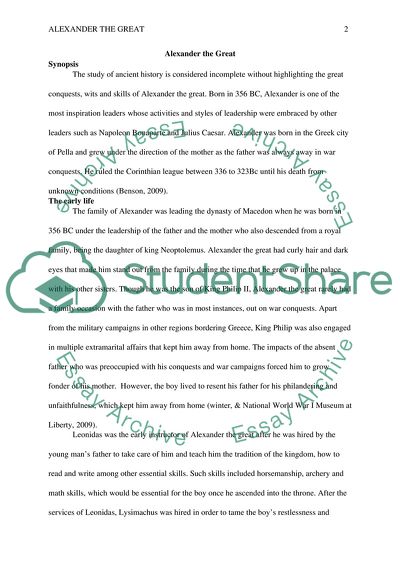Cite this document
(Legacy of Alexander the Great Literature review Example | Topics and Well Written Essays - 2250 words, n.d.)
Legacy of Alexander the Great Literature review Example | Topics and Well Written Essays - 2250 words. https://studentshare.org/history/1835867-alexander-the-great
Legacy of Alexander the Great Literature review Example | Topics and Well Written Essays - 2250 words. https://studentshare.org/history/1835867-alexander-the-great
(Legacy of Alexander the Great Literature Review Example | Topics and Well Written Essays - 2250 Words)
Legacy of Alexander the Great Literature Review Example | Topics and Well Written Essays - 2250 Words. https://studentshare.org/history/1835867-alexander-the-great.
Legacy of Alexander the Great Literature Review Example | Topics and Well Written Essays - 2250 Words. https://studentshare.org/history/1835867-alexander-the-great.
“Legacy of Alexander the Great Literature Review Example | Topics and Well Written Essays - 2250 Words”. https://studentshare.org/history/1835867-alexander-the-great.


